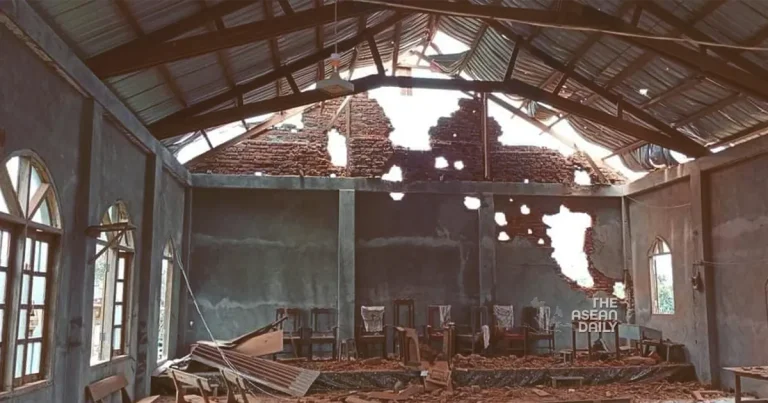8-9-2023 (BANGKOK) Multiple air force commanders from Southeast Asian nations will abstain from attending an upcoming meeting led by Myanmar’s military junta, further intensifying the regime’s regional isolation as it grapples with resistance movements.
The annual Asean Air Chiefs Conference assembles top air force leaders from the 10-member Association of Southeast Asian Nations (ASEAN) to discuss collaboration in defense, counter-extremism efforts, and disaster relief.
Myanmar, currently chairing the ASEAN, is scheduled to host the conference next week, but at least three ASEAN countries have informed AFP that they will not send their top officials to the event.
The junta has faced accusations of war crimes due to air strikes conducted by its predominantly Chinese and Russian-built jets in support of ground troops combatting opponents of its coup in 2021. The junta’s air force chief, Htun Aung, who will chair the conference, has been subjected to sanctions by both the United States and Britain.
Officials confirmed that the air force chiefs of the Philippines, Malaysia, and Indonesia will not attend the meeting. Malaysia’s air force chief will be absent, while the Philippine commander plans to send a video message rather than attending in person. Indonesia’s air force chief will also be absent, but no reason was provided for the decision.
At a recent summit, ASEAN accused the junta of targeting civilians in the ongoing conflict sparked by the coup and of disregarding a peace plan agreed upon with the bloc to end the violence. Indonesian Foreign Minister Retno Marsudi stated that there had been “no significant progress” in the five-point plan agreed upon with the junta over two years ago.
Due to the junta’s refusal to engage with the plan and its opposition, ASEAN has excluded junta officials from high-level meetings.
The air forces of Singapore, Brunei, and Vietnam have not yet responded to requests for comments. However, Thailand’s air force chief is planning to attend the meeting in neighboring Myanmar, according to a defense ministry official.
While ASEAN has suspended high-level meetings with Myanmar’s military leaders, Thailand has conducted its bilateral discussions with the junta and deposed democracy leader Aung San Suu Kyi in recent months, further dividing the regional bloc.
Last year, Amnesty International suggested that the junta was likely using air strikes as “collective punishment” against civilians supporting anti-coup fighters. In March, the United Nations reported that the military had conducted over 300 air strikes in the past year.
In the same month, the junta organized an Armed Forces Day parade, featuring flyovers by Russian-made Yak and Sukhoi Su-30 jets. In April, the military bombed a gathering in the northern Sagaing region, an event that local media and residents claimed resulted in the deaths of approximately 170 individuals, prompting renewed global condemnation of the isolated junta.
Human Rights Watch reported evidence indicating the military’s use of a thermobaric “vacuum bomb” in the attack, potentially constituting a war crime. Last October, air strikes on a concert organized by a major ethnic rebel group in northern Kachin state led to around 50 casualties.
The junta has dismissed reports of civilian casualties as “rumors.”




